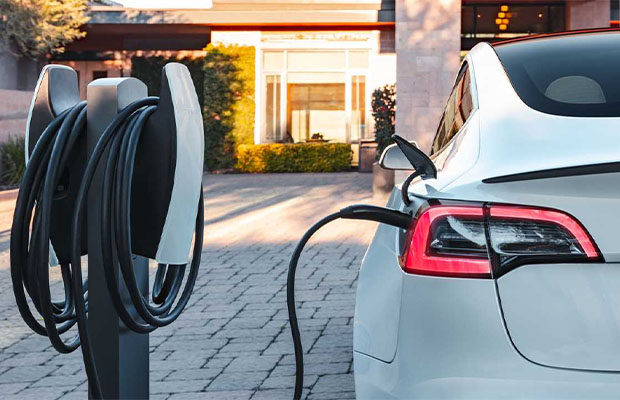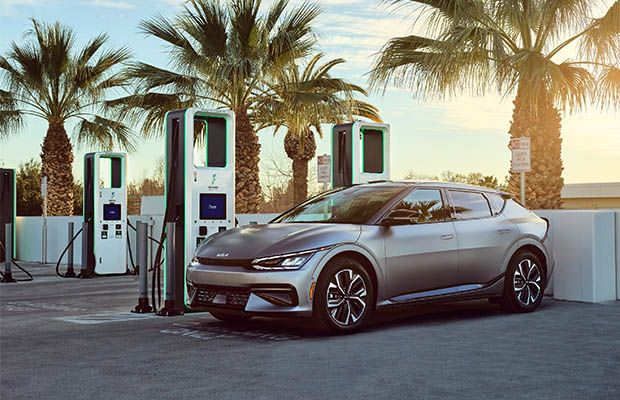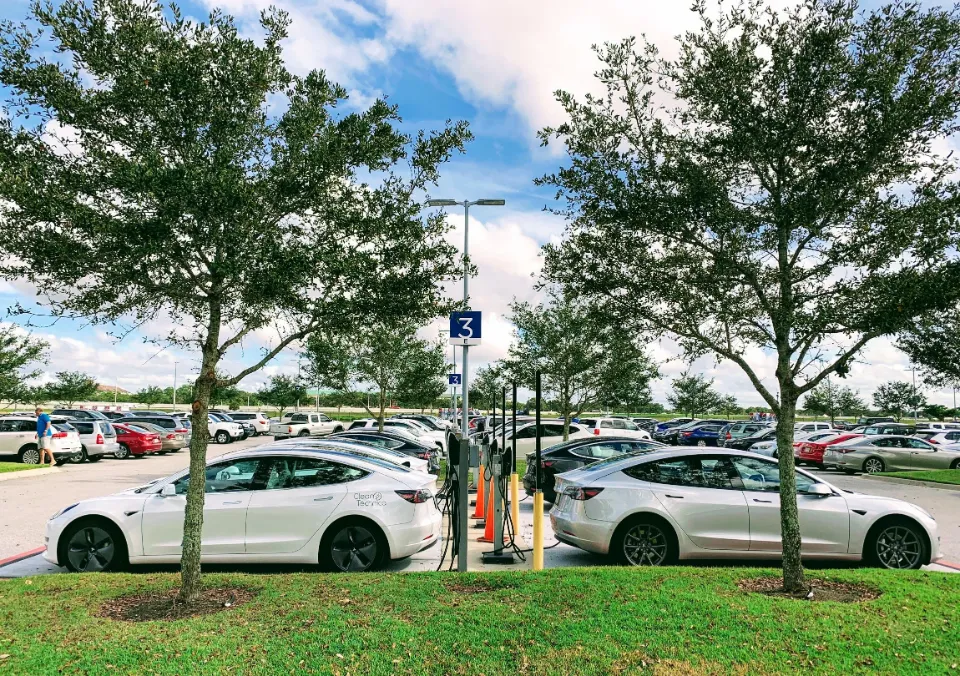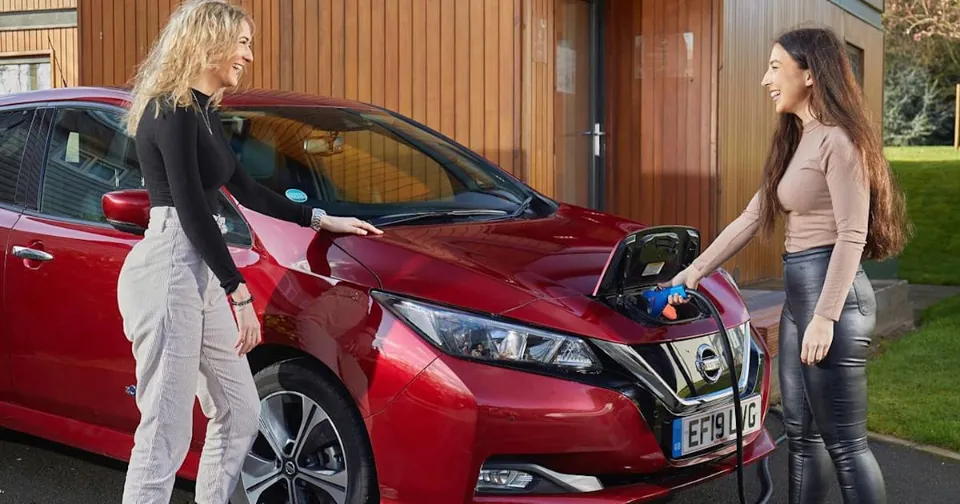With gas prices on the rise and concerns about the environment, it’s no wonder that people are making the switch to electric vehicles.
Do electric cars use oil? EVs do not require oil which is necessary to lubricate the number of moving parts in a combustion engine. Electric motors, not oil-required engines, power EVs.
However, other lubricants that EVs may use ought to at the very least be checked regularly. We’ll delve deeper into this query in this article.
Do Electric Cars Require Oil? Fluids? Lubricants?
Do electric cars require regular oil changes? On any electric vehicle in Colorado, you won’t need to perform a conventional oil change. The moving motor parts in conventional vehicles need to be lubricated with oil.
A combustion engine has moving parts like valves, pistons, and other things that need to be lubricated. An EV is an exception to this. All EV owners should understand the importance of other types of fluids, oils, and lubricants. For instance, an EV’s ability to function properly requires the use of a special oil for cooling. Yes, electric cars require less maintenance, but that doesn’t mean you should disregard them.
There is no such thing as a “zero maintenance” car. Although you won’t ever need to change your EV’s oil in Colorado, you should still have the gear reducer’s fluids and lubricant checked on a regular basis.
Read More: How Much Oil Does My Car Need?
What is An Electric Vehicle and How Does It Work?
We first need to understand how Electric Vehicles work. Electric cars are powered by batteries, which store electrical energy that can be used to power the car. The battery pack is connected to an electric motor, which is what actually powers the car. When you press the accelerator, the motor turns the wheels and moves the vehicle forward. The motor and wheels are connected.

It’s important to note that electric cars have fewer moving parts, but it also contains a system of gears, just like gas cars. The need for this arises from the fact that when the car is turning, the wheels must rotate at various speeds. The drivetrain—the term for the set of gears in an electric vehicle—helps to ensure proper maneuverability.
There are a few things you should understand about EVs before making the switch. You will first need a dependable method for charging your EVs. Second, when making your choice, you must consider the total cost of ownership. Finally, you should think about how driving an EV will affect the environment. But don’t worry; we are here to assist you! We’ve outlined everything you need to know about charging your EVs below, so you can make the switch with confidence.
Let’s start by talking about charging EVs. You’ll require a dependable power source as well as a means of coupling your EVs to it. The good news is that there are several options, including home charging stations and public charging stations. Technology advancements have also made charging an EV simpler than ever. There is a charging option that is appropriate for you whether you are at home or on the go.
Next, let’s discuss price. The initial cost of an EV is only one factor in the decision-making process. The ongoing expenses for charging and maintenance must also be taken into account. Luckily, new research has revealed that electric vehicles are less expensive to operate than conventional gasoline-powered cars. You can actually anticipate saving thousands of dollars in fuel and maintenance costs over the course of an EV’s lifetime. And when the time comes to sell or trade in your EV, you can anticipate receiving a higher resale value than a comparable gasoline-powered vehicle.
Let’s talk about the environment last but not least. Even though every car has an impact on the environment, electric vehicles are significantly less polluting than conventional gasoline-powered cars. Electric vehicles (EVs) have zero tailpipe emissions thanks to their electric motors.
Additionally, since EVs run on electricity rather than gasoline, they produce significantly less greenhouse gasses over the course of their lifetime. The best thing you can do for the environment is to drive an electric vehicle (EV).
This guide will go over how to wash a car at home and some frequently asked questions about best practices for washing cars in order to assist you in keeping your car clean.
What Electric Car Maintenance is Required?
You can permanently stop getting oil changes when you purchase an EV. But routine maintenance is still necessary for an EV. Additionally, just like when you own a car with an internal combustion engine, you should anticipate needing sporadic tune-ups from your preferred maintenance provider. The good news is that compared to a traditional gas-powered vehicle, an electric car engine typically eliminates more than two dozen moving parts. But while an EV requires less maintenance overall, there are still a few areas that require your attention:
Battery Coolant
The main challenge for electric vehicles, like those with internal combustion engines, is heat management. The lithium-ion battery of an EV produces heat, so the car has coolant to help control the temperature of the battery, power inverter, and cabin heater. These other parts are essential to the vehicle’s performance and safety, while the cabin heater is less crucial. In an EV, battery coolant should therefore be routinely checked.
Brake Pads
EVs still use brake pads to stop, despite having a different form of propulsion. Therefore, brake pads should be inspected and replaced on a regular basis. However, since EVs employ regenerative braking, you should notice less wear on your brake pads and need to service them less frequently than with a conventional vehicle. Another ingenious feature of EVs is their regenerative braking system, which increases the amount of power that the car can produce by converting kinetic energy into electrical energy. Checking the braking system is a crucial component of an electric car service visit because it is crucial for both safety and power production.
Maintaining the Software
The software of all contemporary cars includes an engine management system, and electric vehicles are no exception. While your EV should have the most recent software installed, some EV manufacturers can also deliver over-the-air updates to give your car new features. By eliminating the need for software updates at the dealership, you get new features and efficiency-improving adjustments without needing to schedule another service appointment. Ask your manufacturer for instructions on how to keep your EV’s software up to date if you drive one.
Transmission Fluid
Do electric vehicles use oil? No, but some people continue to use transmission fluid. Despite being uncommon, it’s crucial to be certain. As a result, be sure to check the owner’s manual for any requirements for transmission fluid if you currently own an EV or are thinking about purchasing one.
Read More: How Long Does a Car Wrap Last?
FAQs
Is It Easier to Take Care of An Electric Vehicle?
Certainly in the near future. Your most frequent tasks will be things like lubricating door hinges and properly inflating tires because EVs are generally simpler and their engines contain fewer complex parts. There are undoubtedly fewer concerns when driving a car on a regular basis.
Do Electric Cars Use Fluids?
Though your electric car does not need oil, it requires a routine check on these 3 fluids in EVs; coolant, brake fluid, and windshield washing fluid.
Do Electric Cars Have Transmissions?
Yes, electric cars have transmissions, but they are drastically different than internal combustion engine transmissions.
Do Electric Cars Need Maintenance?
Obviously, numerous maintenance issues do not exist in EVs, but it is required that you do regular check-ups for its electrical systems including the battery, electrical motor, and minor electronics.
Will Electric Cars Kill the Oil Industry?
Not only will the EV not kill oil, but it will also be the catalyst to get Big Oil has entered the green sector and is providing investors with even greater profit margins.
Conclusion
There’s no denying that electric cars are becoming more and more popular.
Electric vehicles don’t use oil in the traditional sense because their electric motors generally don’t have oil in them that needs to be changed as do gasoline engines.
Read Next: How to Wax a Car?





